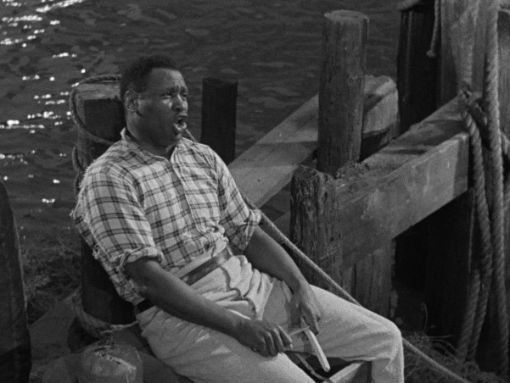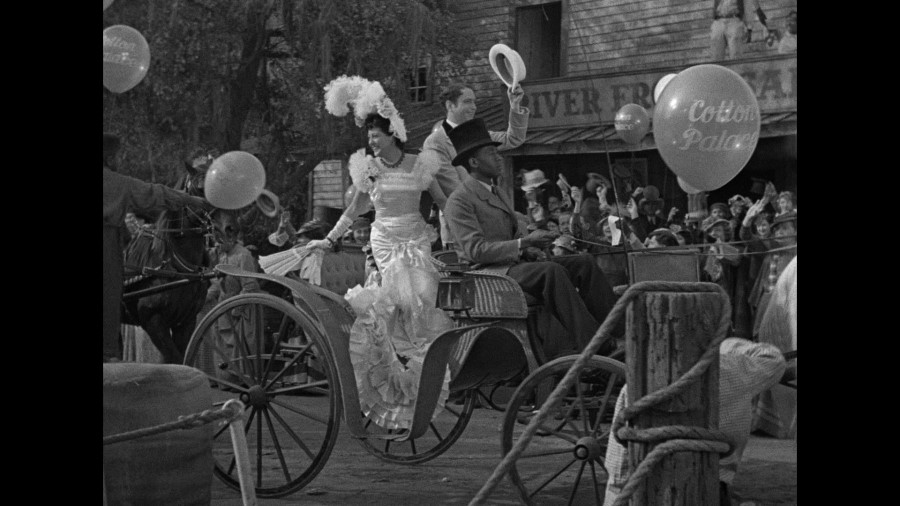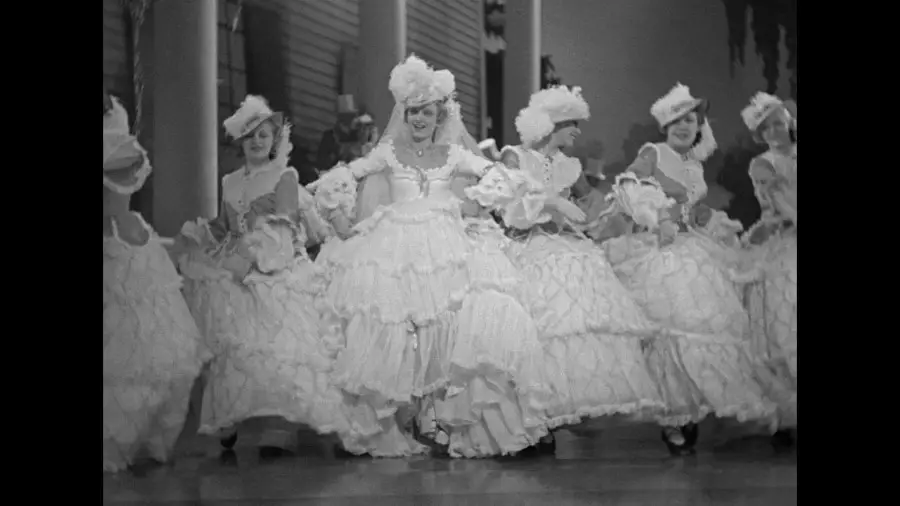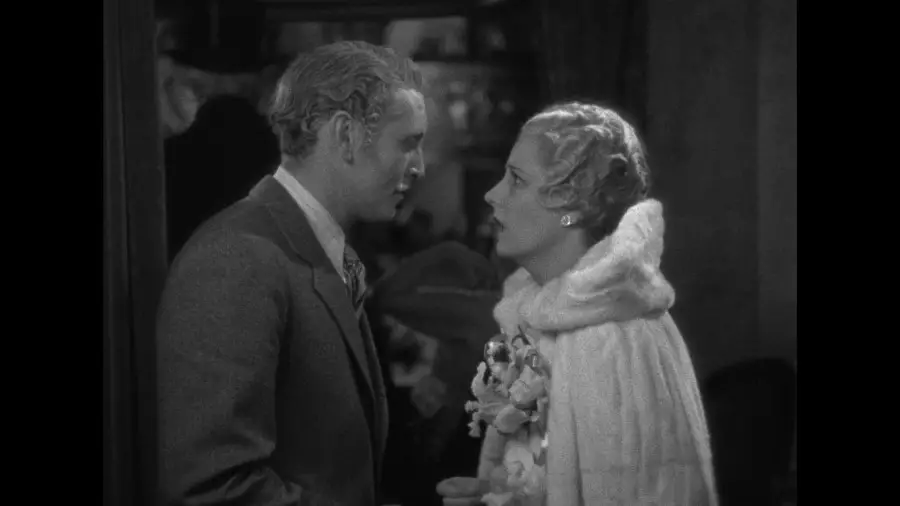Show Boat

See more details, packaging, or compare
Synopsis
Jerome Kern and Oscar Hammerstein II’s immortal musical adaptation of Edna Ferber’s sprawling novel receives its most faithful and enduring cinematic adaptation under the elegant direction of James Whale. A rich portrait of changing American entertainment traditions and race relations, Show Boat spans four decades and three generations as it follows the fortunes of the stage-struck Magnolia (Irene Dunne), an aspiring actor whose journey takes her from her family’s humble floating playhouse in the 1880s South to the height of fame in the 1930s North. The cast of show-business legends includes Helen Morgan, Hattie McDaniel, Charles Winninger, and the great Paul Robeson, whose iconic, soul-shaking rendition of “Ol’ Man River” is one of the crowning glories of the American stage and screen.
Picture 8/10
Criterion reaches back to another LaserDisc title and presents James Whale’s Show Boat on Blu-ray in its original aspect ratio of 1.37:1 on a dual-layer disc. The 1080p/24hz high-definition master comes from a new 4K restoration, scanned from a 35mm safety fine-grain that was struck directly from the original negative.
This is yet another stunner, and ignoring some elements within the film itself, it doesn’t stick out as a film that is now 84-years-old. The image is, first off, razor sharp a majority of the time, and the level of detail is just extraordinary, with finer details, even stray hairs, coming off crisp and clear. Contrast and gray levels look superb, blacks are deep without crushing, and whites are bright without blooming. Everything is crisp and clear, outside of moments where varying levels of a soft focus have been applied.
Grain is, not all that surprisingly, heavy, but it looks natural and clean, never noisy or blocky. Restoration efforts have been impressive, cleaning up a good bulk of damage, with only some tram lines and a handful of scratches remaining, but they rarely call attention to themselves and are very minor. It’s an incredible looking presentation, gorgeous even, and it’s obvious a lot of effort has gone into the work behind it.






























Audio 6/10
The lossless PCM 1.0 monaural presentation is a bit of a mixed bag, but I think it just comes down to materials and the state of the elements. Overall it’s easy to hear and it’s clean, in that it’s free of any damage like cracks or pops. There’s a bit of a hiss but that is to be expected and it’s not heavy or distracting. There can be some distortion and an edge at times, yet impressively the musical numbers all sound good, with a decent level of fidelity and range. Paul Robeson’s “Ol’ Man River” is the stand out, managing to deliver some noticeable bass. The track has its pros and cons, but for it’s age it has some solid moments.
Extras 8/10
Criterion manages to revisit another of their early LaserDisc titles, and they port over a lot of the material from it. Yet, looking at specifications for that disc it appears not everything has been carried over. I will stress up front that I have not seen the LaserDisc firsthand, and I’m basing comparisons on research I’ve performed on that release.
The big feature from that release is the 1989 audio commentary from musical historian Miles Kreuger. As an early day commentary it is a little rough around the edges, and it’s obviously scripted, but I’ll still say Kreuger keeps things going at a great pace. He covers many topics, including the film’s structure, its production history, the various versions of the play and film, the original novel, how MGM bought (and buried!) the film to do their own remake, and contextualizes certain plot points (specifically the key point revolving around the film’s interracial marriage). He covers all of this well, but he is far more interested in the musical numbers, their history, and how they are filmed here, and he only really seems to come to attention at these moments. When the musical numbers come up he likes to break down these sequences, and though he doesn’t get into the same level of detail that John Muller does in his commentary for Swing Time and its dance numbers, he focuses on how the numbers have been edited, how they’re framed, how they’re delivered, and how it all comes together to give the appropriate impact. He also talks about Whale’s history as a filmmaker and how the cast (mostly all of whom had worked on stage productions) had no faith in his ability in properly adapting the musical to film, which in retrospect seems puzzling. Dead spaces increase as the film goes on, and some comments don’t age well (though I think he’s air quoting it, when he mentions actors “blacking it up” it’s still cringey). Despite any questionable aspects it’s a good track and it’s great that Criterion can yet again save another one from obscurity.
Criterion then adds a couple of new interviews. Remembering James Whale presents Whale biographer James Curtis talking about Whale’s career, from assisting Howard Hughes on his film Hell’s Angels, to making Frankenstein and then his work on Show Boat and the difficulties he experienced on it. Shana L. Redmond then talks for 27-minutes about the film’s presentation of race in Recognizing Race in “Show Boat.”. Though the film does have some progressive attributes (at least for the time!) it still falls victim to demeaning portrayals around the black characters in the film. The best example of these conflicts is in Hattie McDaniel’s portrayal of Queenie: right off the bat she tells a white character off, which would have been unheard of beforehand, making her a strong woman right off the bat, but her character is such a stereotype in every other regard it can nullify that strong attribute of the character. Other unflattering representations within the film are covered by Redmond, including the film’s use of black face, but she does address how the film, despite being tone deaf in many places, criticizes the racial divisions of the time, and it did work to open doors. It’s a more than fair analysis of the film.
Criterion also includes a new restoration of the 30-minute 1979 documentary Paul Robeson: A Tribute to an Artist, which Criterion had previously released as part of their Paul Robeson box set (which makes me think that set may never see a Blu-ray release if they’re including the film as a feature here). Directed by Saul J. Turell and narrated by Sidney Poitier, despite its short length it pulls off an incredible job in looking at Robeson’s film work and his fight for civil rights, which led to him being blacklisted for a decade. It examines his stage work (even digging up archival footage of an interview he conducted around his performance of Othello) and film work, and shows how he would change through the times, linking these changes to how the words for his signature song, “Ol’ Man River,” would be altered through the years (this is also brought up by Redmond’s previous interview). It’s an excellent documentary and I’m glad Criterion found a way to bring it out again (and it looks really good with this new restoration).
Criterion also includes a section around the original 1929 film adaptation of Show Boat. I’m a bit confused on the history of the 1929 version as I guess I was incorrectly under the impression the film was lost, but MGM did release it, along with this 1936 version and their own 1951 remake, as part of a LaserDisc box set, The Complete Show Boat, though the set included the original silent version and not the sound version that ended up being distributed. With the advent of sound, the silent 1929 version was delayed from distribution and went under reshoots, adding a whole new sound prologue that featured a few musical numbers, along with some sound inserts dispersed throughout the rest of the film. I believe my misunderstanding to the film being lost comes from the fact that it was actually most of the sound footage that was lost, with only the audio remaining for the longest time. Some of this footage has been found in recent years, though, and Criterion presents it here along with what they had presented on the LaserDisc.
For the prologue, Criterion presents 16-minutes of this footage, which seems to be four of the five musical numbers shot for the film’s sound opening (I’m guessing the other one is still missing). The first couple of numbers, “C’mon Folks” and “Hey, Feller!” were included on Criterion’s LaserDisc and look to be sourced from a rough video tape, or some other analog format. These numbers feature Tess Gardella, in full black face playing Queenie (I’ll also point out the fact Gardella appeared in black face as Aunt Jemima in that brand’s original advertising). Following this are then numbers for “Bill” and “Ol’ Man River,” the latter of which appears to be a dub over the performer, Stepin Fetchit. It’s nothing like Robeson’s performance, and I believe all of the original lyrics are there (some were changed for the 1936 version, in particular, the N-word, at Robeson’s insistence). This footage for these two numbers looks better in comparison to the Gardella footage, though also looks to be from video. I am pretty sure these last two performances were only recently found and only existed as audio prior (they were not on the LaserDisc).
Also ported from the LaserDisc is 20-minutes’ worth of excerpts from the silent portions of the 1929 film, with commentary by Kreuger. This looks to be a direct port of what was on the LaserDisc, analog-looking footage and all. The footage (some of which makes the 1936 version look far more racially sensitive in comparison) comes from key moments of the story and Kreuger explains how the film was originally adapted from the novel and stage musical, which involved dropping the musical numbers and then adding them back in when it was decided to redo it for sound. Kreuger also likes to look at the construction and editing, going silent during one significant moment to allow the viewer to just watch. Kreuger also talks about the 1951 version, which led to MGM buying up the rights of previous version. I feel Criterion could have included the full 1929 version if they felt so inclined (and maybe even the 1951 version), though I can only guess they probably didn’t feel it was worth the extra cost in licensing. As it is, it’s a good analysis that also offers a little more on the history of the various stage and film versions.
Also from the LaserDisc are two radio adaptations: the 1939 Campbell Playhouse performance, featuring Orson Wells as the narrator and Andy Hawks, Helen Morgan as Julie, and the novel’s author Edna Ferber as Parthenia Hawks, along with the 1944 Radio Hall of Fame version, featuring Allan Jones as Gaylord Ravenal and Charles Winninger as Andy Hawks. Running 58-minutes and 59-minutes respectively, they’re both very different adaptations, with the latter more concerned about musical numbers (with a weak performance of “Ol’ Man River”), and the former relying more on narration from Welles. Both follow the general plotlines but, it being radio and cut for time (with commercials to boot!) a lot has been cut out.
Unfortunately there is a lot of content missing that was included on the LaserDisc. There was more text material around showboats of the era, along with a short archival documentary about them. Criterion also included material about Edna Ferber and the original novel, along with a lot of material about the various stage performances of Hammerstein and Kern’s musical adaptation of Ferber’s novel, going from 1927 through to 1946, using text notes and photo galleries. It also appears they included footage or audio recordings from at least one of these stage performances (the 1932 Broadway run). Admittedly these things are covered to certain extents in the features that are included (the commentary and the interviews), but it looks like the LaserDisc got into all of this in a far more in-depth manner. Gary Giddens does fill in some of these gaps in his new essay found in the included booklet (an essay that includes the term “a what-the-fuck double take,” and I love that it does), writing about Ferber, the novel, and the musical, but his focus is still more on the 1936 film than any of the other adaptations, stage or film. It’s a good read, but it would have been nice to get more material on those aspects of Show Boat, and it feels like a very big gap in this release’s otherwise extensive set of supplements.
Closing
I’m happy Criterion can revisit another one of their LaserDisc titles, and it’s an excellent edition. Though it doesn’t carry over every supplement from the LaserDisc edition (which featured more material on the original novel and the many stage performances of the musical adaptation), it still ports over the bigger features and adds some great new material. It also doesn’t hurt that the 4K restoration is a stunner.







